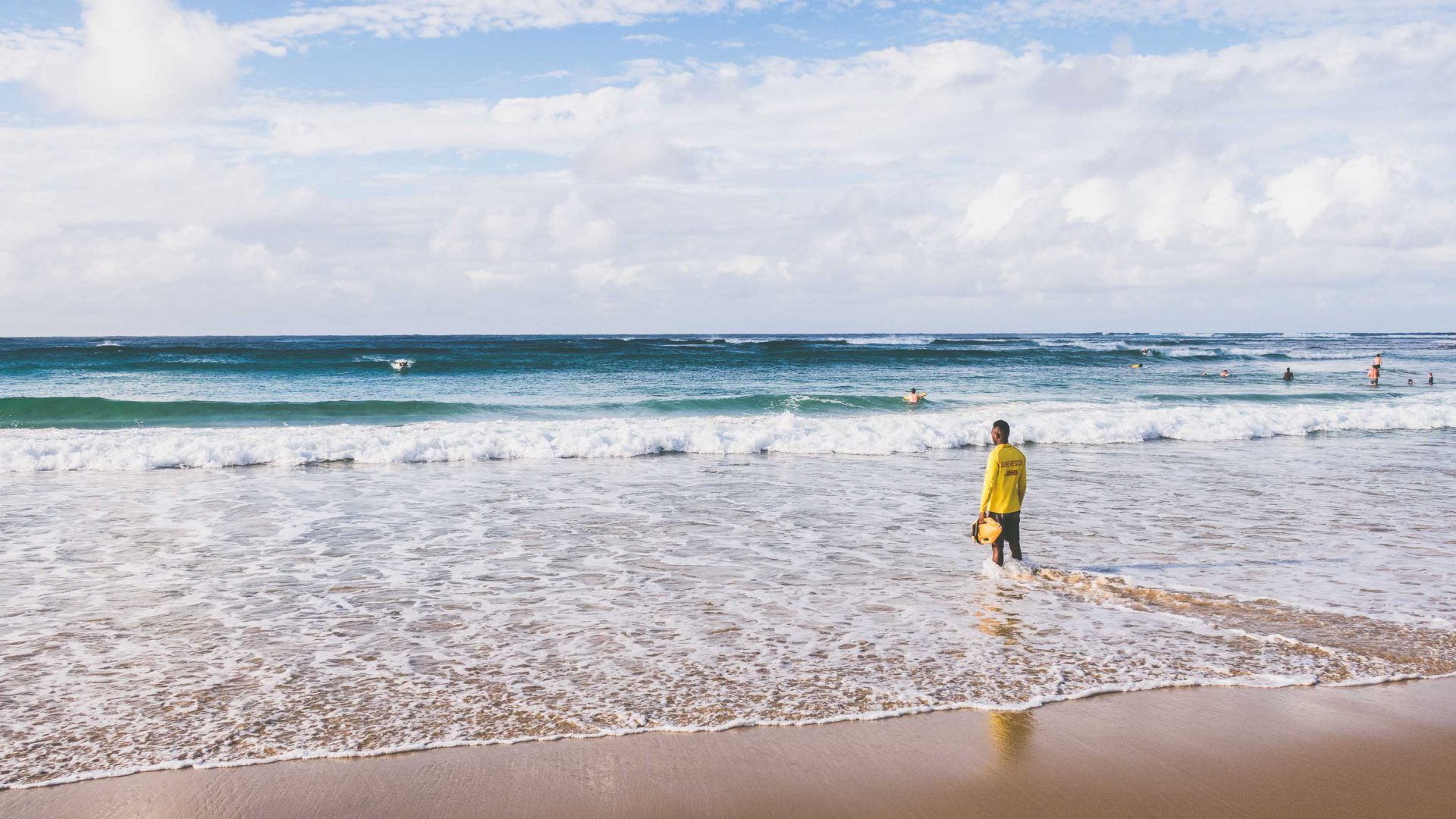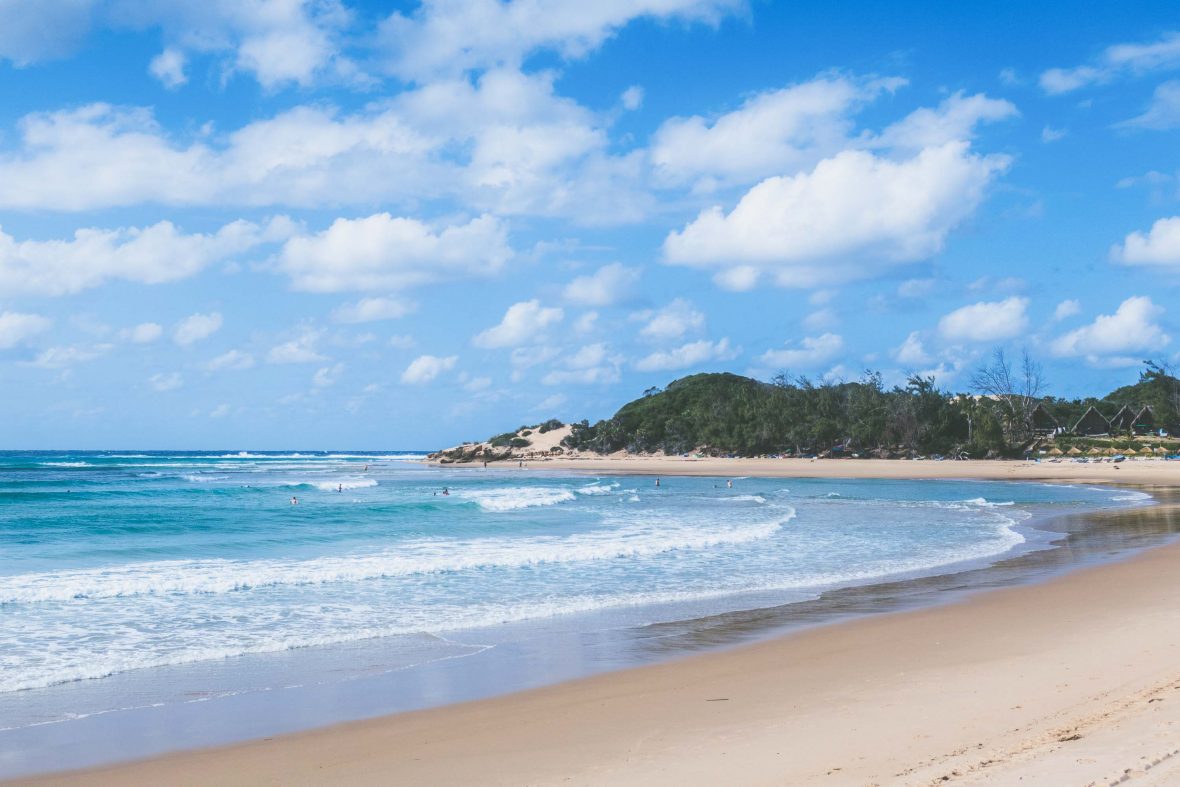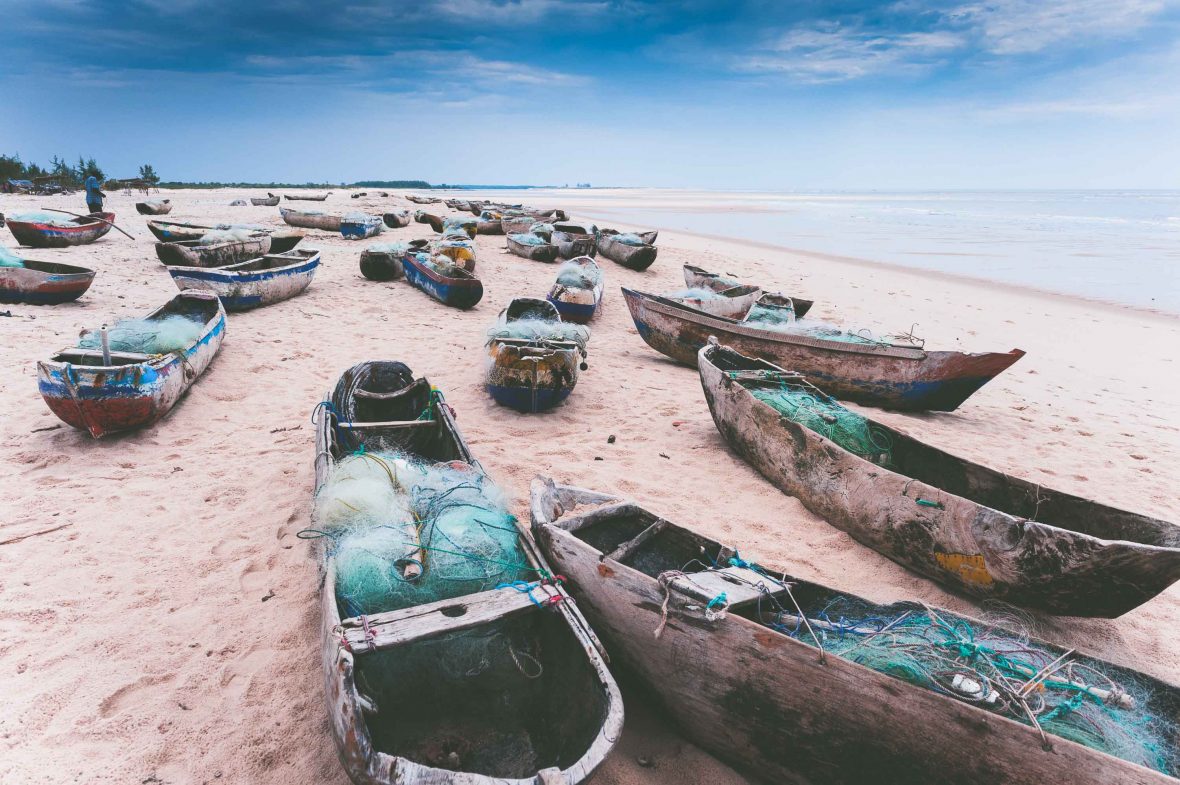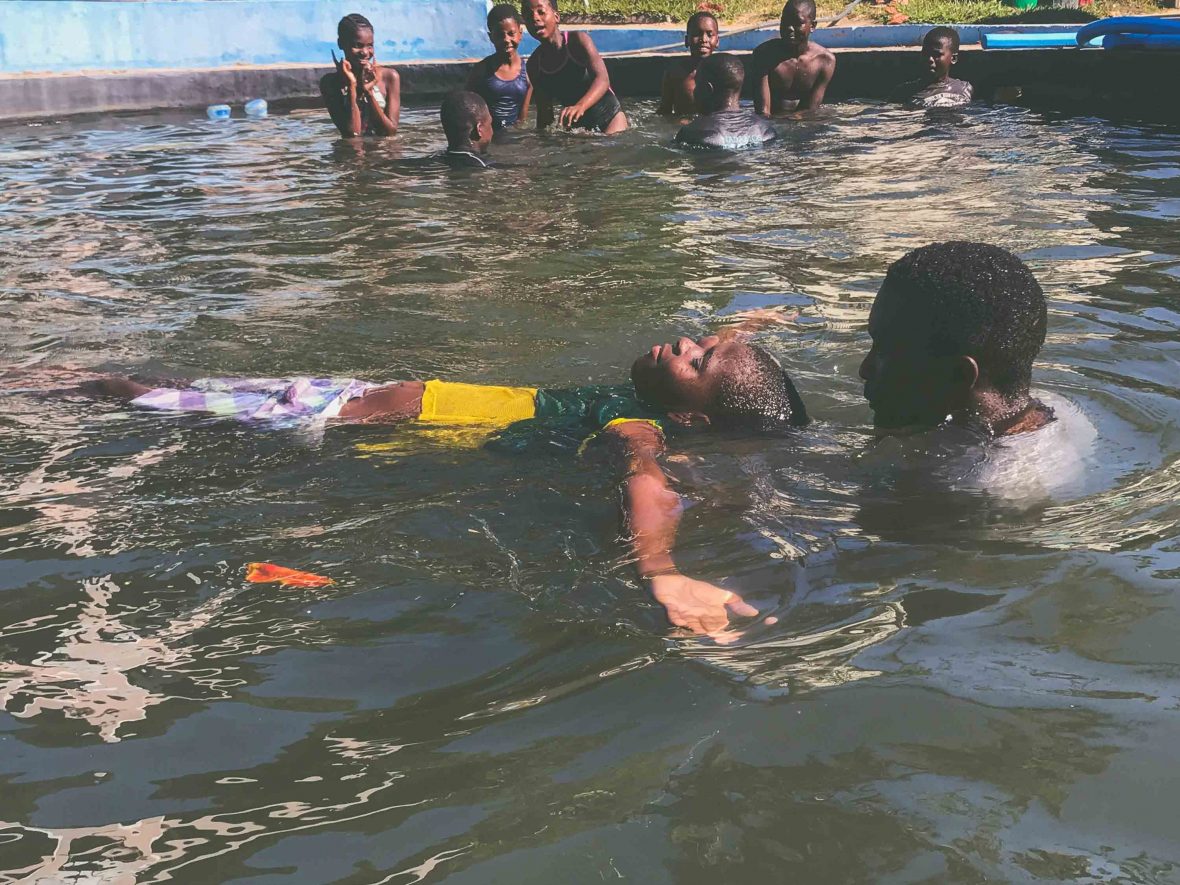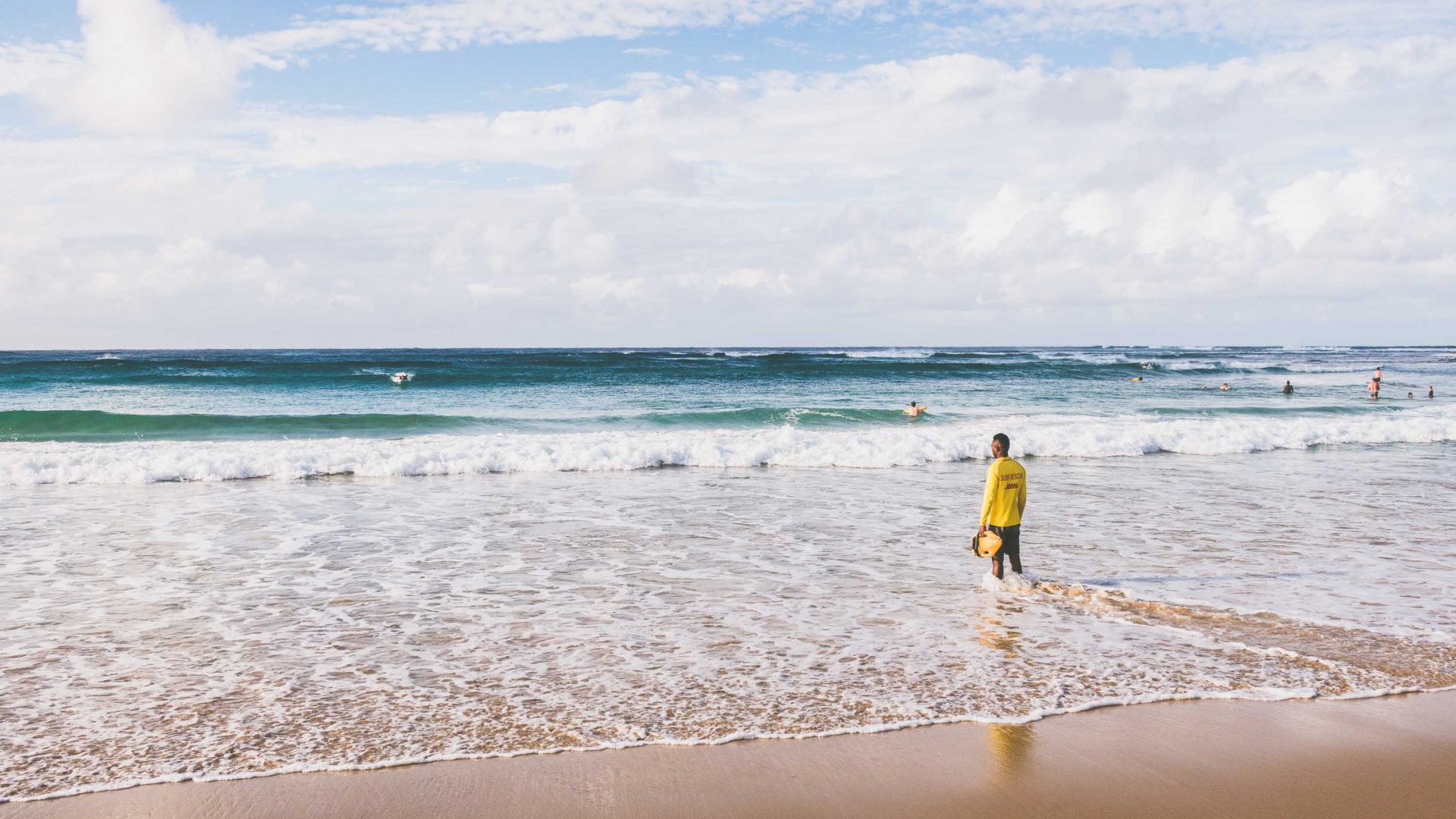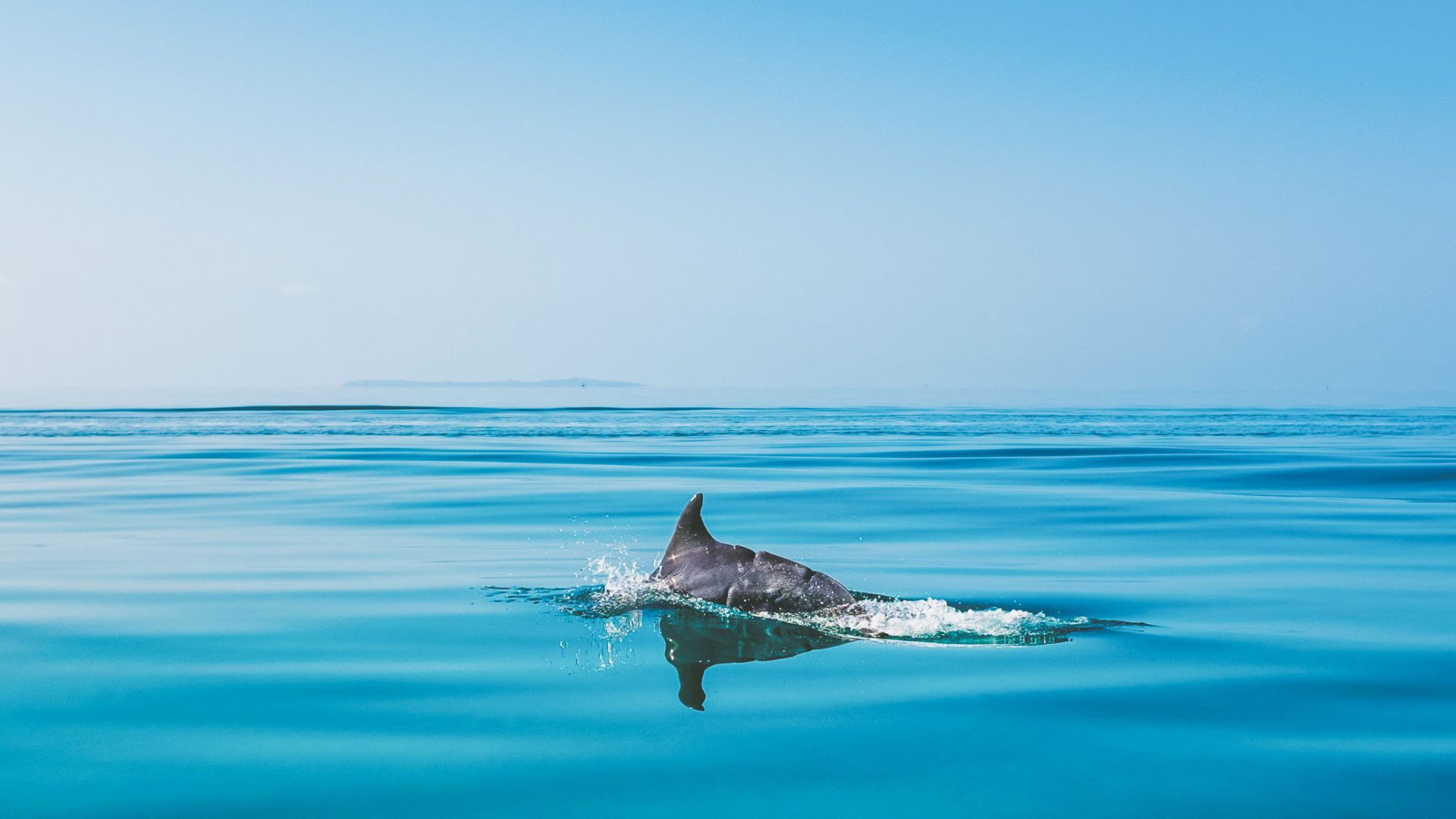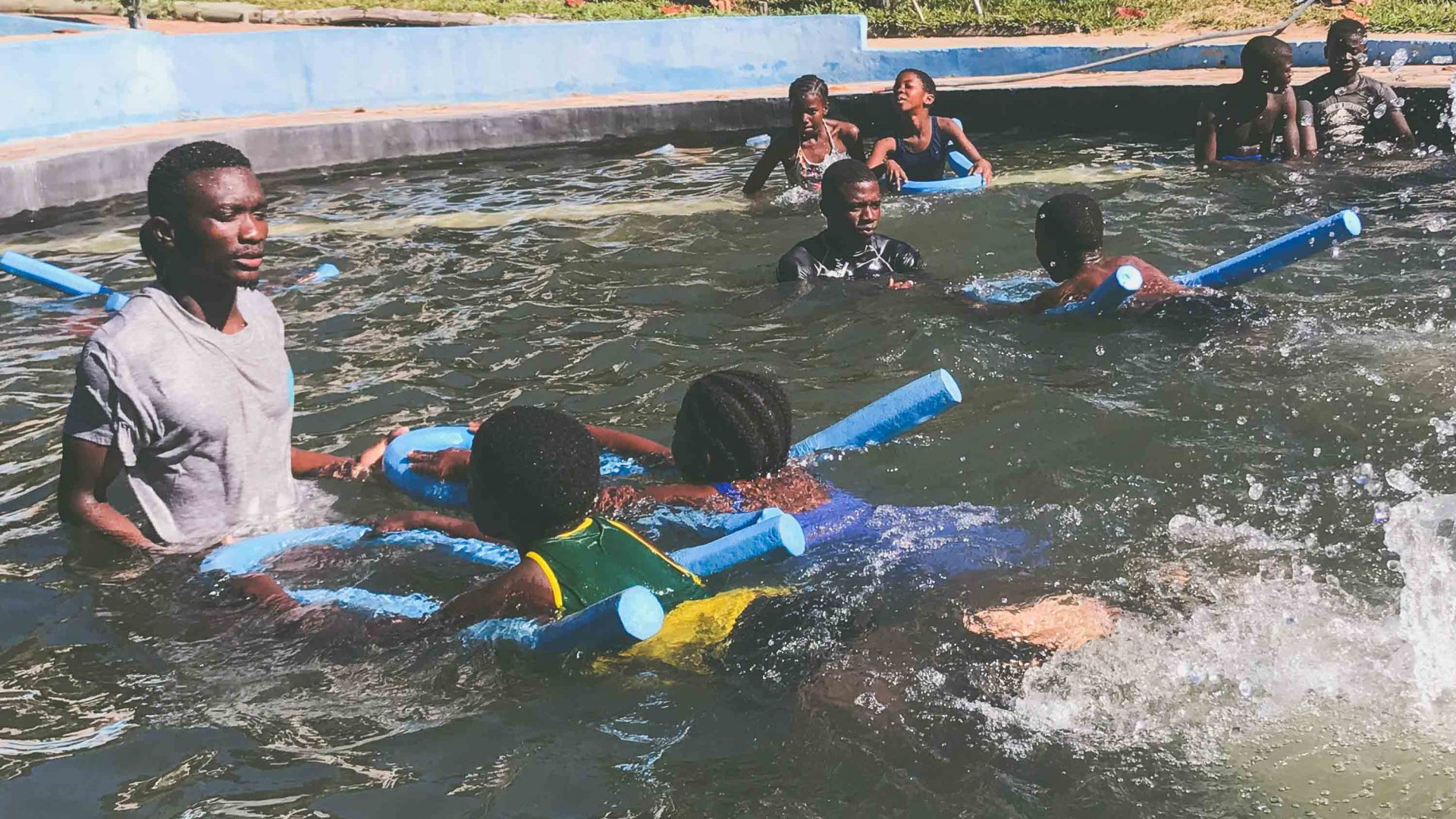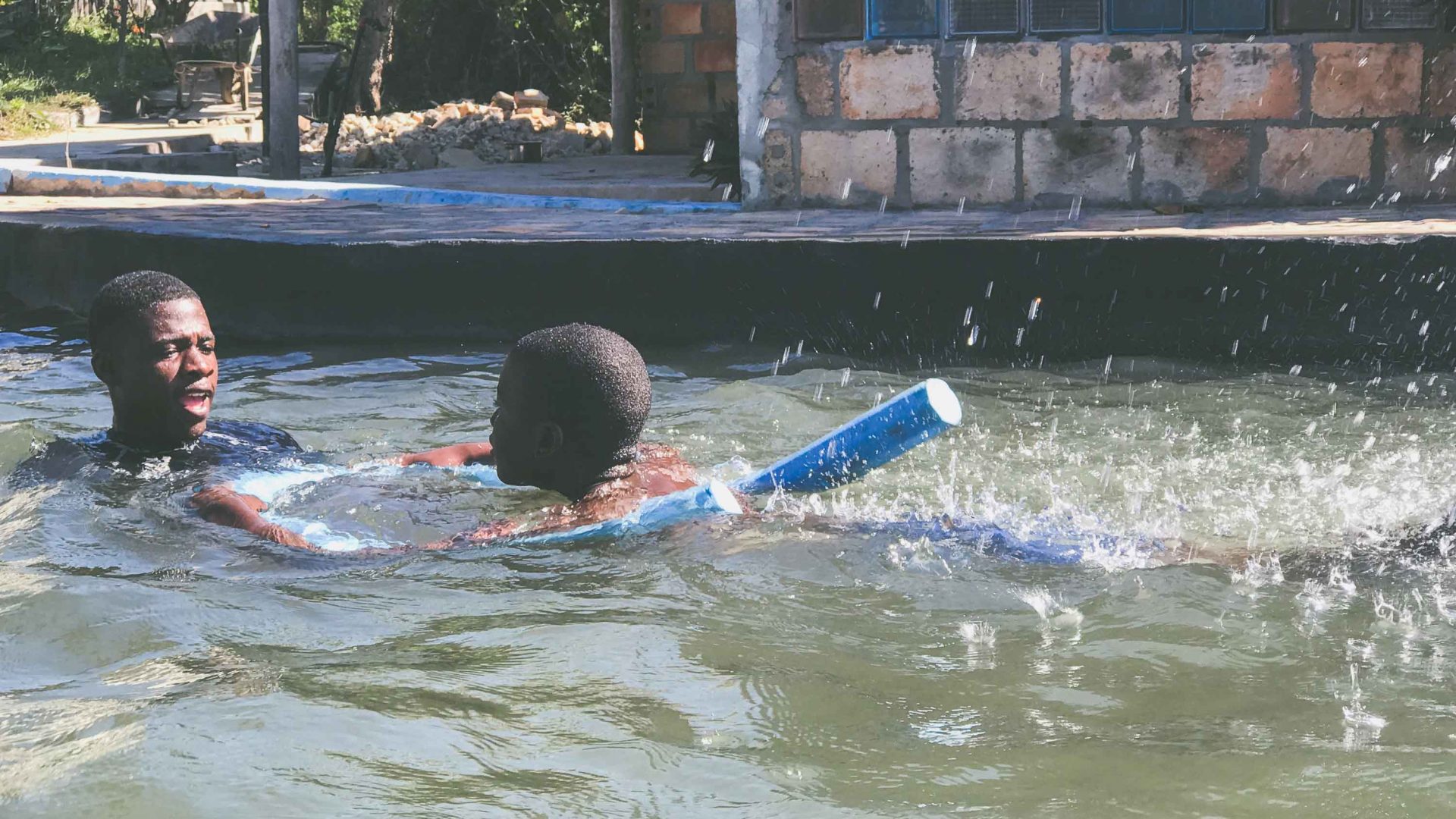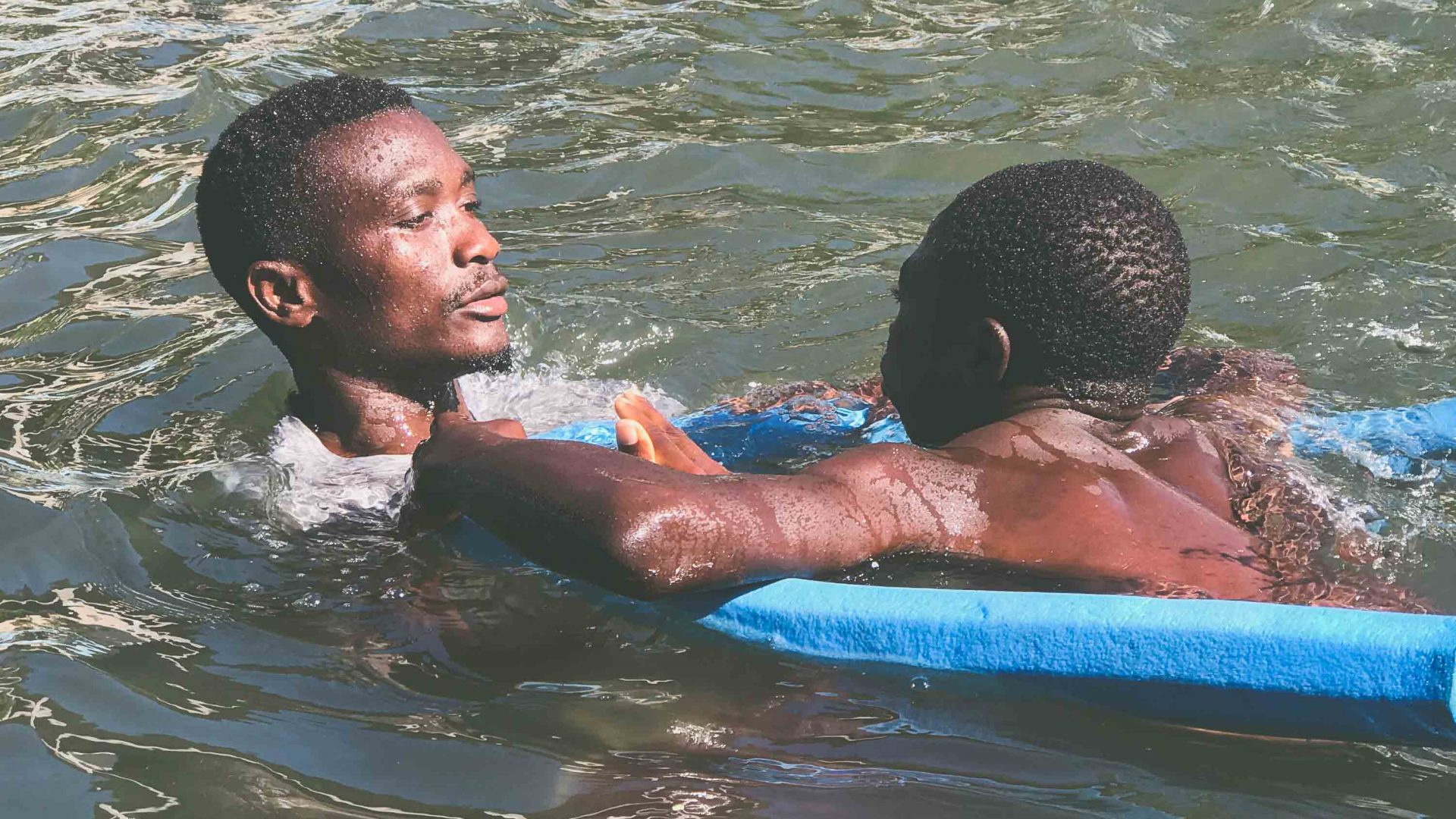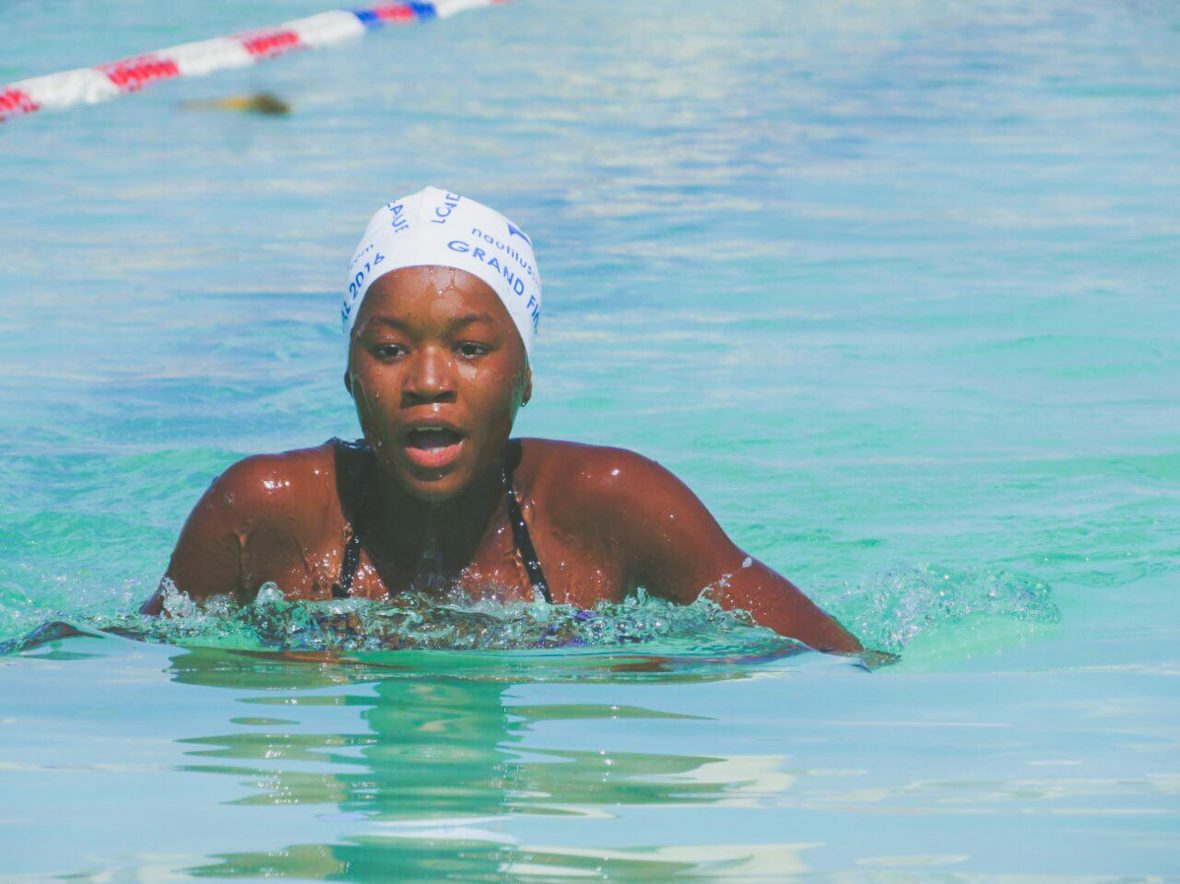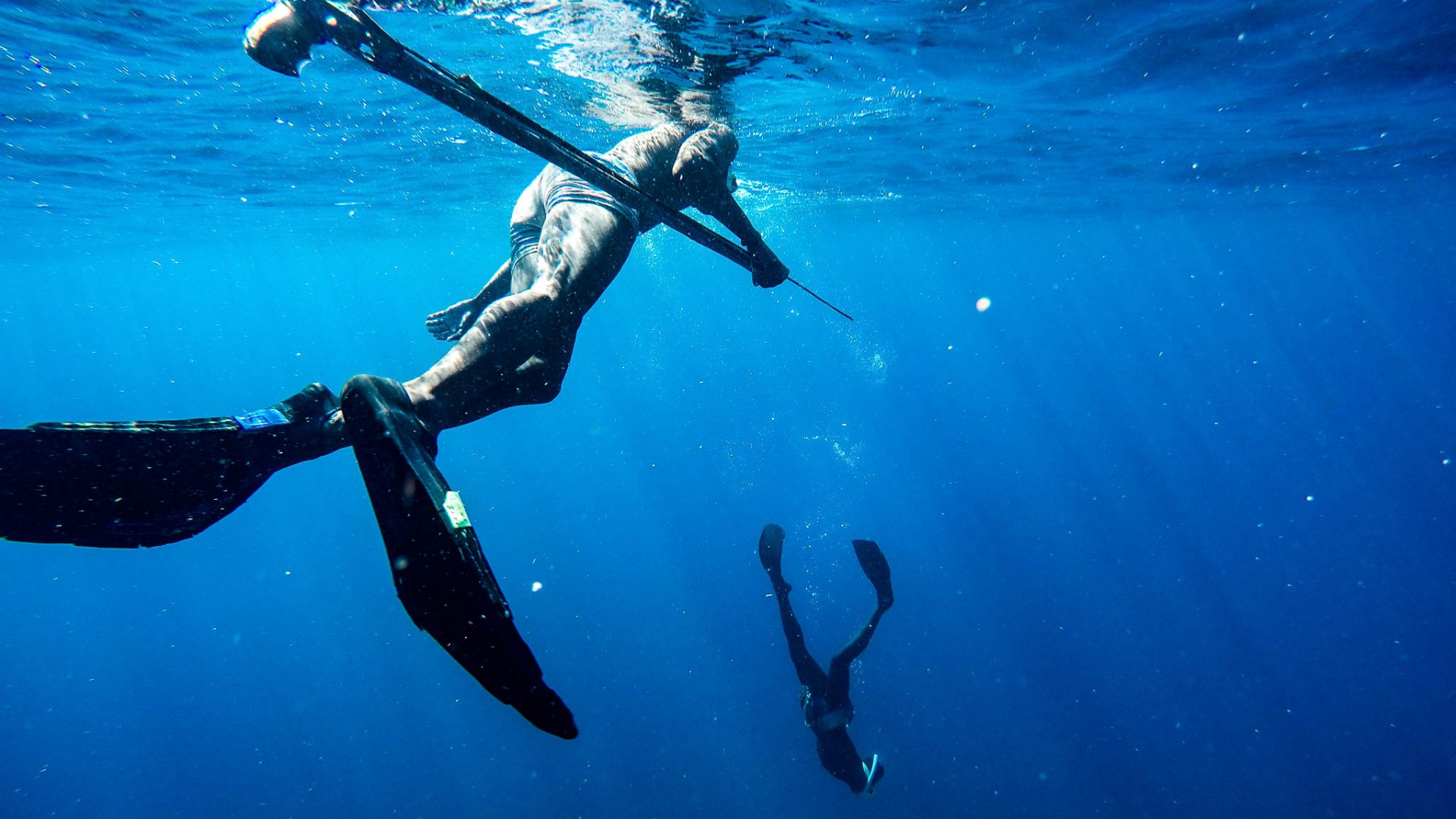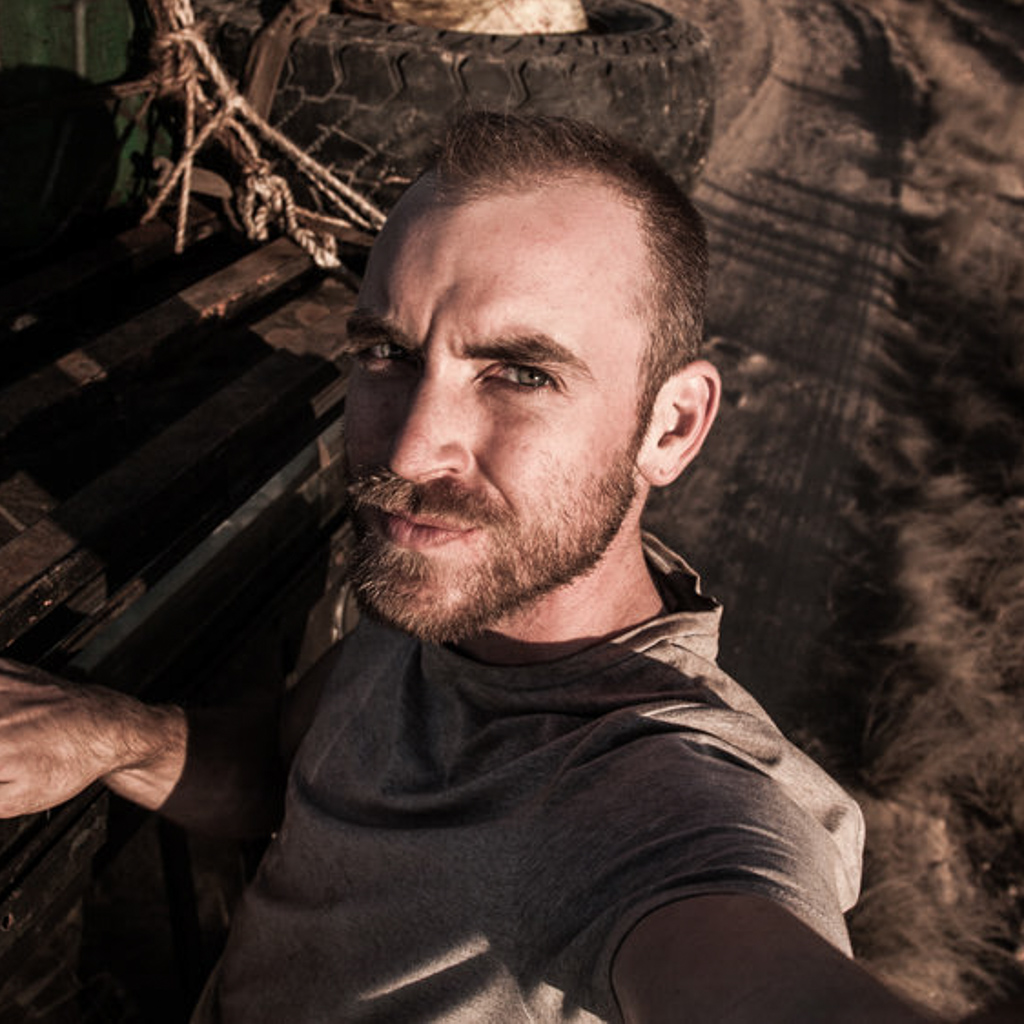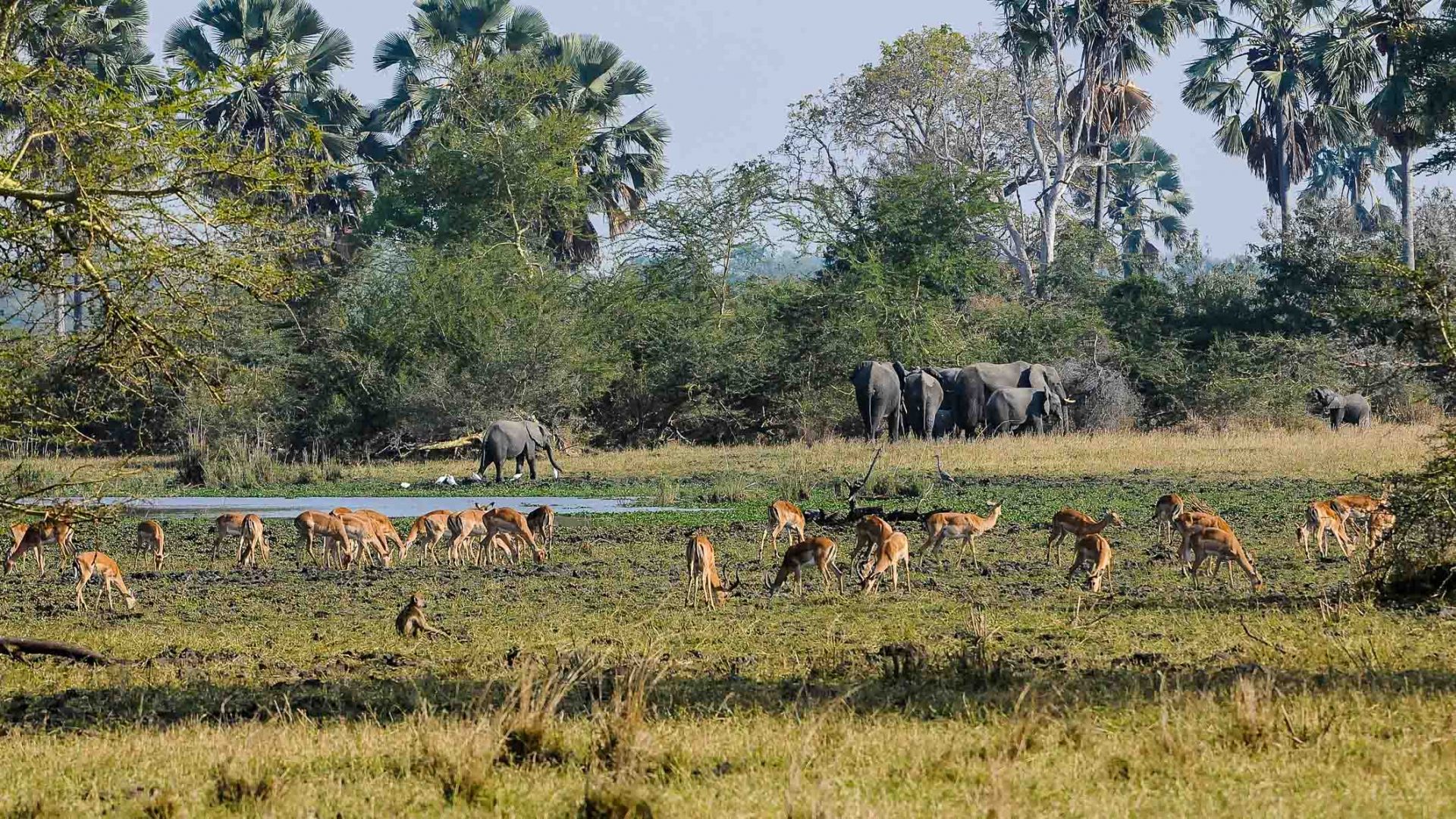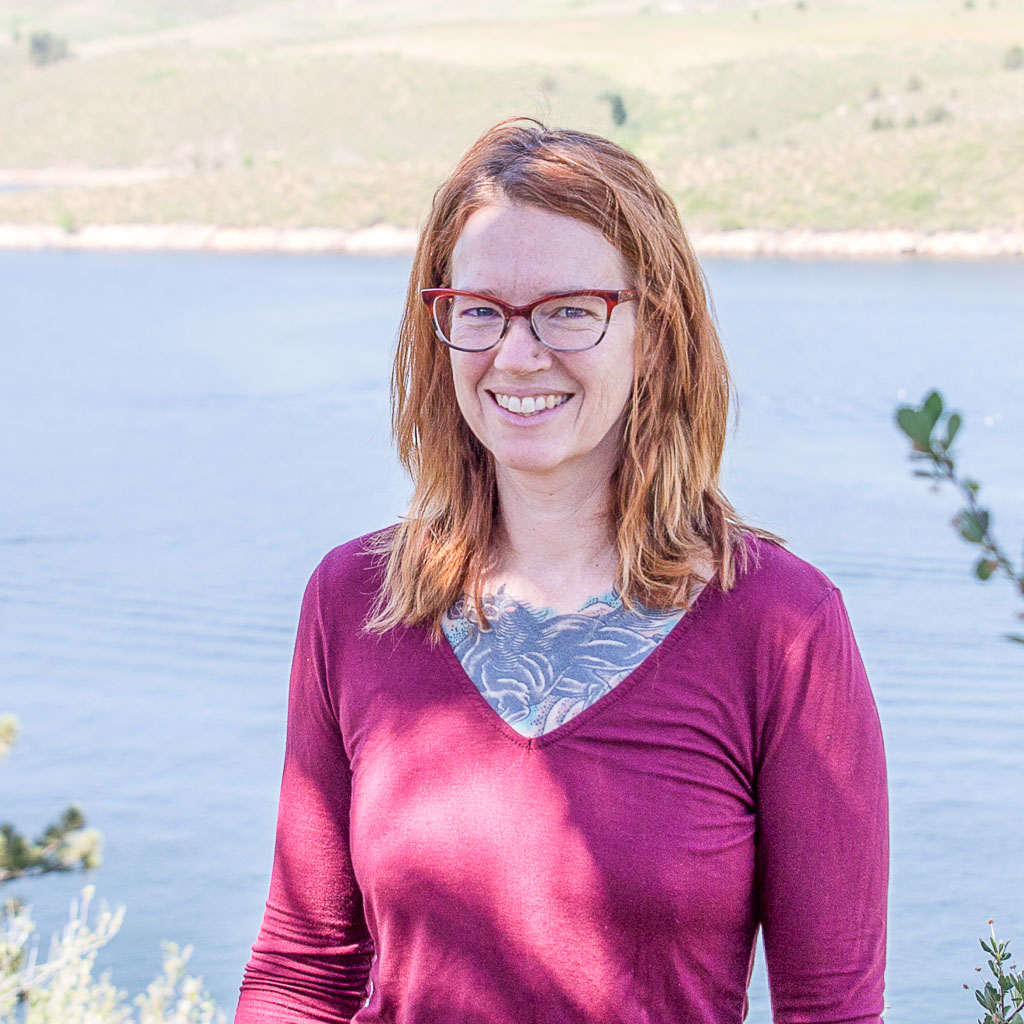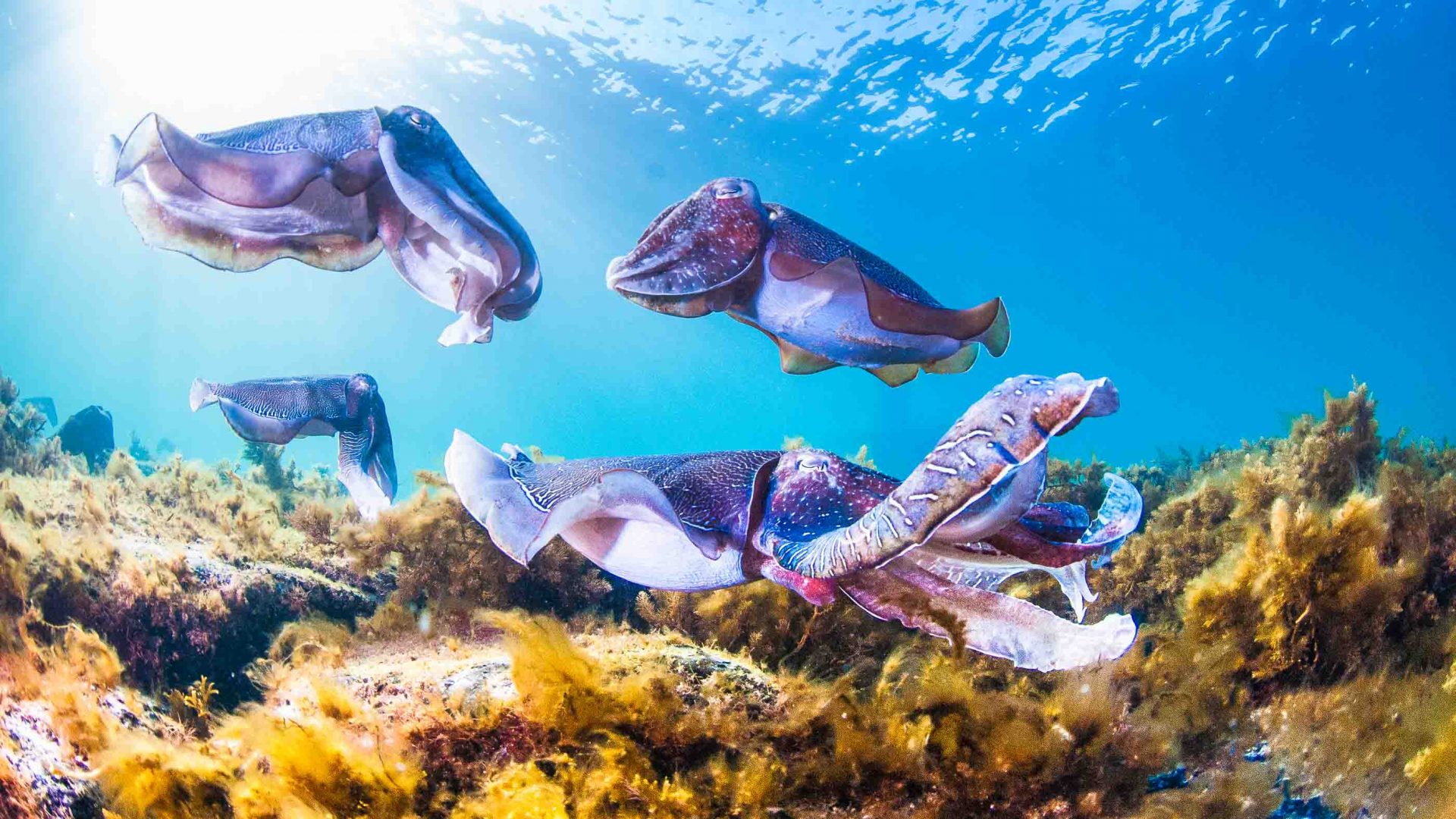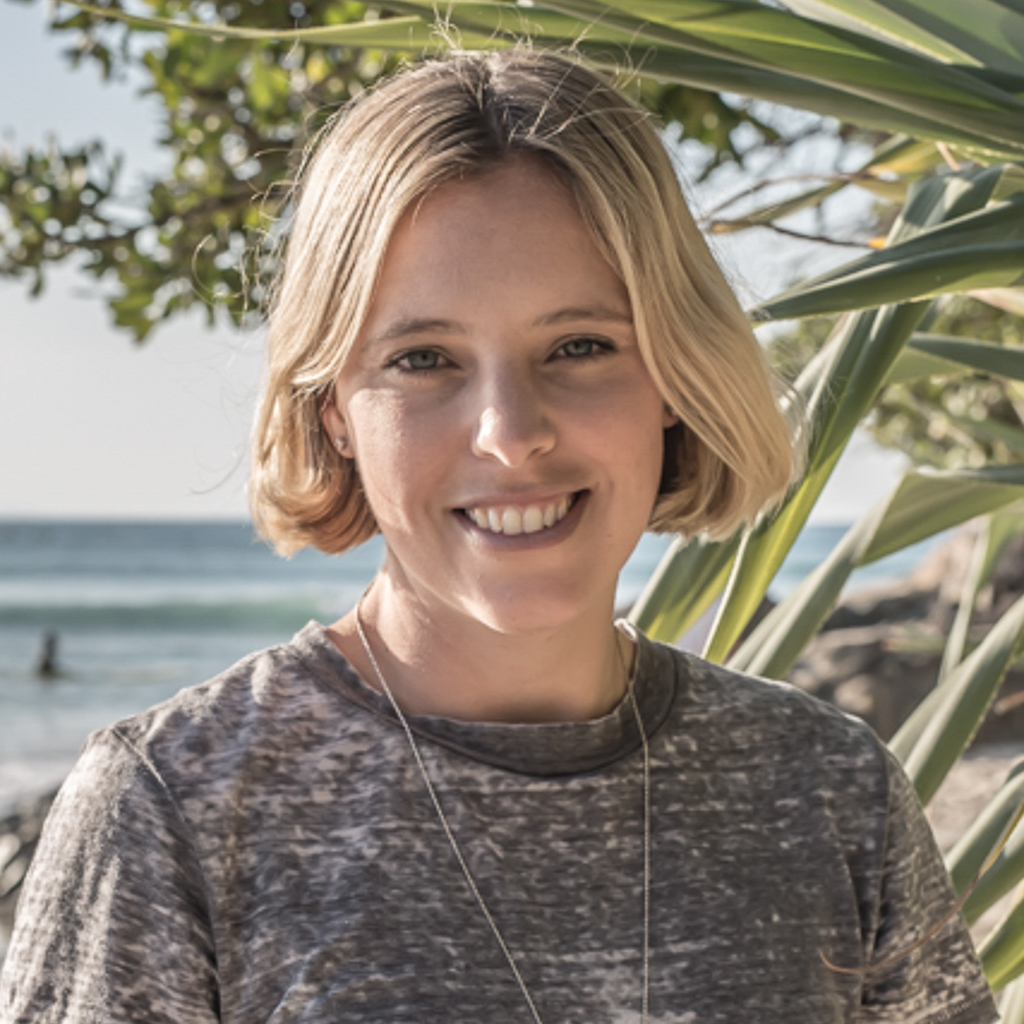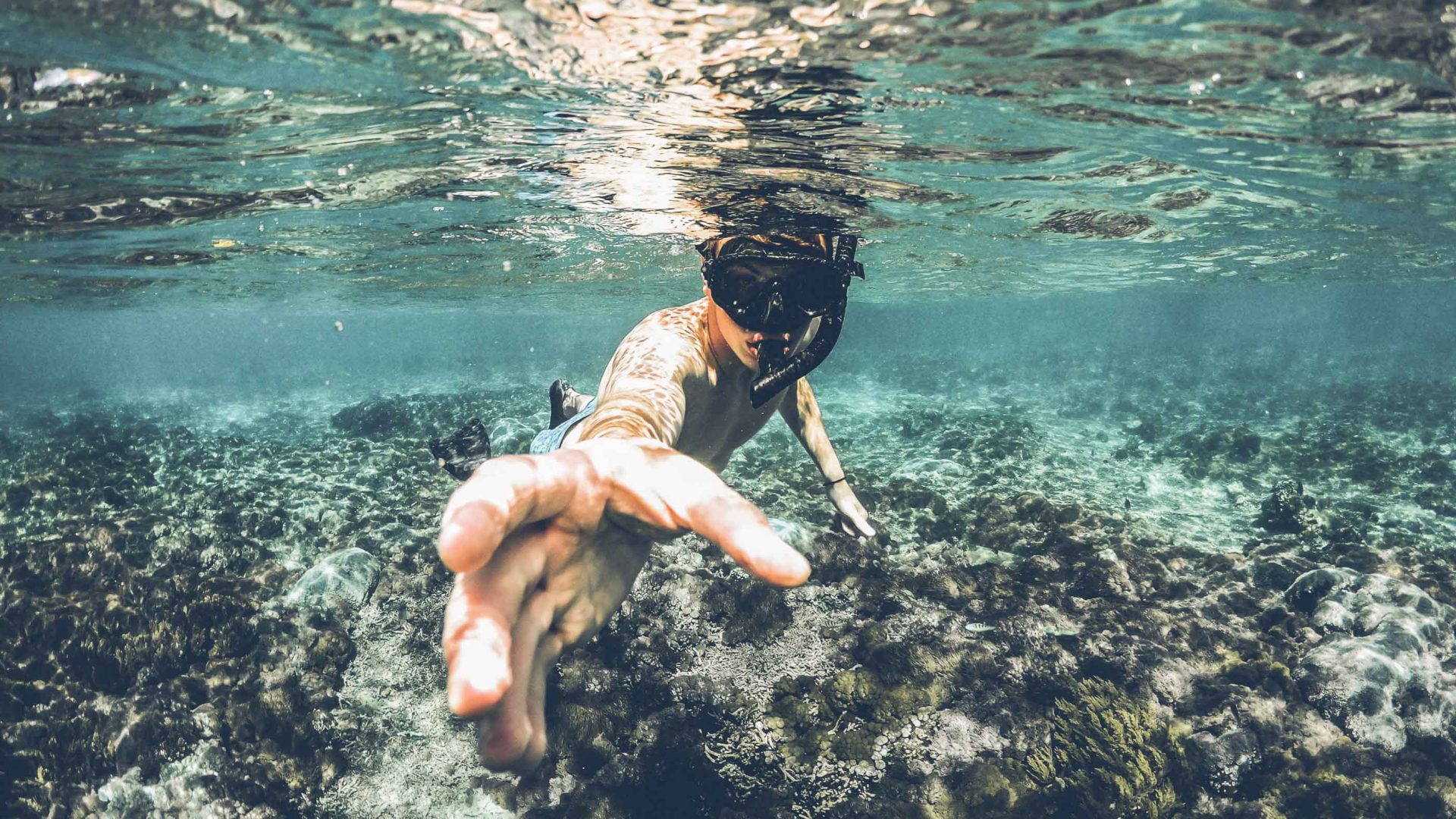In a community where the majority of locals are terrified of the water, despite relying on the ocean for their income, these Mozambicans are teaching youngsters to swim as a way of inspiring a new generation of ocean conservationists.
Alberto, our usually chirpy housekeeper, has a melancholy air this morning. Most mornings, our greetings are a bright “Bom dia! Tudo bem?” (“Good morning! Everything OK?”) followed by a discussion of whether I’ve tried the dish he’s brought for lunch—often matapa, the traditional cassava dish here in Mozambique. Other days, we simply look across the bay for humpback whales.
“Sim, tudo bem,” he sighs. And what he tells me next reveals that everything is far from OK. His eyes well up as he explains, in English more broken than usual, that his sister’s grandson had been playing on the beach yesterday, was caught in a strong wave, and drowned.
“The sea was bad yesterday,” he muses sadly. “It is very good today.” I follow his gaze towards the ocean and he’s right. The howling winds have dropped off and the sea looks like a wrinkled blue blanket; calm and innocuous. Somehow, today’s flat water makes the tragic loss of a young life seem even more cruel. The funeral is at 11am.
Simone’s friend and fellow Coral Reef Club member, Nelson Nhamussua, 20, has also become passionate about the ocean. Training to become a surf instructor, he hopes to one day go to university to study marine biology. Nelson learned to swim through Nemos Pequeños and his involvement with Coral Reef led to an opportunity to work as a guide for a local ecotourism initiative called Tofo Life. The tour helps villagers earn money to reduce their reliance on unsustainable fishing while teaching tourists about the local community’s daily life.
I ask him how the program has changed his perception of the ocean: “I come from a family of fisherman,” Nelson tells me, “but I’m proud of myself for learning about marine conservation. I hope other Mozambican people will change their mind about the sea and realize that the ocean isn’t only there to supply us with food.”
As well as teaching life-saving skills, the Ocean Guardian instructors have directly saved lives too. In 2016, a boat sailing from Inhambane to Maxixe sank as the 40 passengers were disembarking. The weather was treacherous and most of the people inside did not know how to swim. It was a stroke of luck, perhaps, that four Ocean Guardian instructors were close by and rushed to the site, working together to rescue passengers, administer CPR and send casualties to the local hospital. Sadly, there were four fatalities but had it not been for the instructors, it would have been more.
There is a long way to go, but things are steadily improving. Nearly 2,000 children have been reached by the Ocean Guardians project since its inception in six years ago. In 2015, before the program was implemented on remote Bazaruto Island in Mozambique, only six per cent of Bazaruto’s population could swim. Now, that figure is 11 per cent.
It will take time to change the nation’s negative perception of the ocean, but hope comes through this younger generation as hundreds of children develop a positive relationship with the ocean from a young age.
“I hope that in the future, many Mozambicans will have developed ownership of the ocean,” explains Razaque,” and will be able to take positive actions for the wellbeing of the ocean and for the communities that rely upon the ocean for their livelihood. I also believe that many young Mozambicans will be able to say that MMF helped them to reach an important position in society.”
